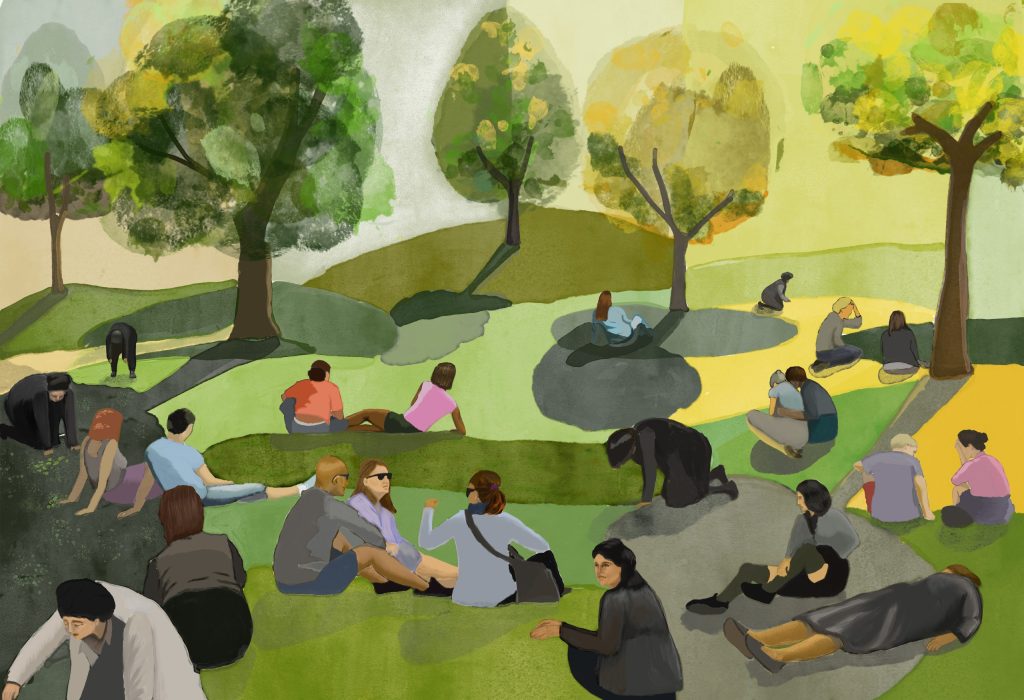An interview with the members of the Filma collective who organizes ‘Filma. Feminist Film Festival’ based in Ukraine, on the festival’s latest edition and the importance of maintaining a feminist film festival despite the war.

The second edition of Filma. Feminist Film Festival based in Ukraine, took place online between November 24 – December 9, 2022. The festival is organized by a group of queer feminist activists, as a collaborative platform for films that meet the principles of intersectional feminism, anti-racism, anti-colonialism, inclusion, and a culture of consent.
The festival’s program “When Trees Bloom at Home Again” focuses on the films about migration caused by the war and dedicated to the ones who have been forced to leave their homes because of the armed conflict.
Yasemin Köker from Çatlak Zemin talked to the members of the Filma collective about the festival’s latest edition and the importance of maintaining a feminist film festival despite the war.
First of all, can you tell us a few words about the collective behind this festival?
All members of the collective of Filma. Feminist Film Festival have queer feminist activist background and were involved in different activist and artivist projects. We are sharing common values of intersectionality and trying to build up space for cinematic voices on underrepresented issues in society, because we feel the lack of programming from the activist standpoint on the majority of festival platforms in Ukraine.
Since when Filma Feminist Film Festival has been around? How and why did you decide to organize a feminist film festival in Ukraine?
It is the second year of the festival, but the idea of creating one was around for some time before we actually managed to launch it in 2021. As was mentioned before, we were interested in creating a platform where both programming and discussions around will be implemented using intersectional feminist lenses – something we lacked in the Ukrainian film festival scene. We also wanted the festival to be accessible for different groups of people. That’s why Filma is in an online format and all screenings are free of charge – so that people all over Ukraine (and this year globally) with access to the internet can join screenings and additional activities. We have also managed to provide Ukrainian audio descriptions for selected films to include audiences with full or partial visual loss. We can say that accessibility is more of a process and we are moving in that direction and trying to make our festival as open as it can be, but there is always room for improvement. Shortly, our mission can be described as an intersectionality not only in themes and issues raised through programming, but also in our approach in making a feminist film festival.
This year the festival takes place under war conditions. Can you please explain in which physical circumstances you are organizing this year’s festival?
Honestly, it is very hard. Most of the festival team is located in Ukraine, and we are facing challenges that all people in our country are going through. The launch of the festival was especially hard due to the massive shelling a few days before the opening and a long blackout as a result. We were very moved to see that despite restricted access to the electricity, Internet and mobile connection people still watched our program in Ukraine.
You can read the full interview here.

